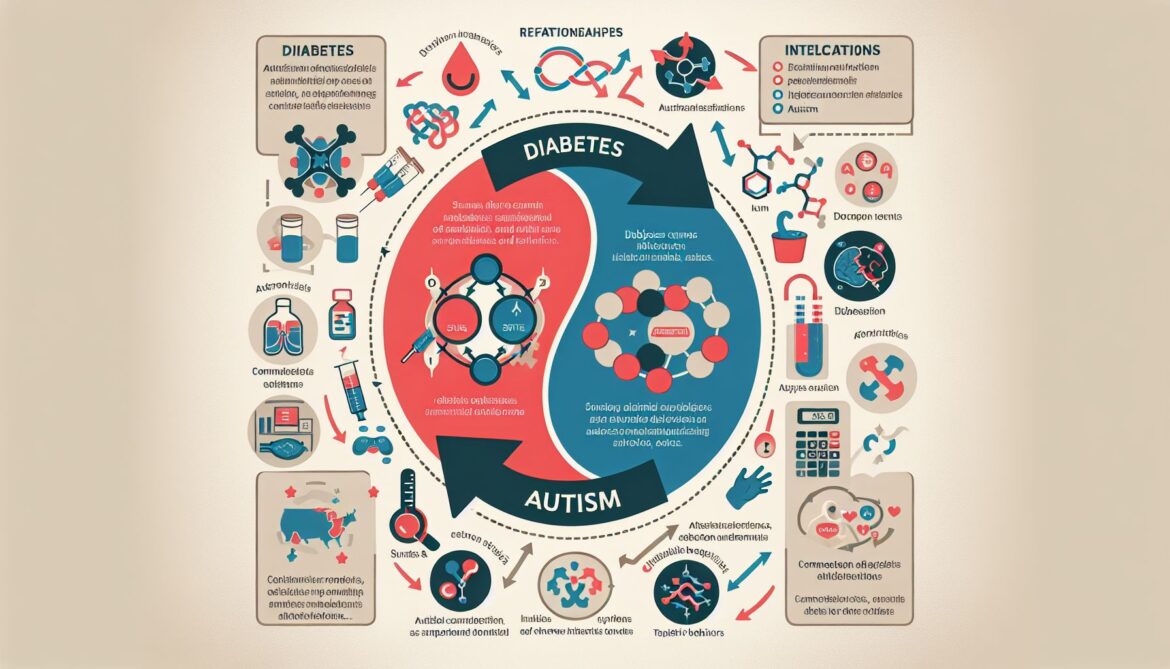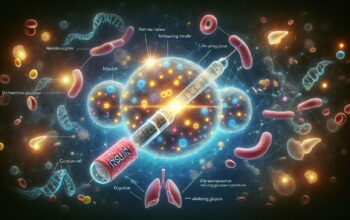When you hear about a condition like diabetes, the chances are that autism isn’t the first thing that comes to mind. However, recent research suggests that there may be a link between these two seemingly unrelated conditions. Today, let’s delve deep into the current understanding of the relationship between diabetes and autism.
What is Diabetes?
First, let’s clarify what diabetes is. In its most basic form, diabetes is a chronic health condition that affects the body’s ability to use sugar for energy. Instead, sugar levels build up in the blood, leading to a variety of health issues. According to the World Health Organisation, an estimated 422 million people worldwide have diabetes. This represents a four-fold increase from 108 million in 1980 –
What is Autism?
Autism, or Autism Spectrum Disorder, is a developmental disorder that affects communication and behavior. It includes a wide variety, ‘spectrum’, of symptoms, skills and levels of disability. The Centers for Disease Control and Prevention (CDC) states that approximately 1 in 54 children in the United States is diagnosed with an Autism Spectrum Disorder.
The Intriguing Link Between Diabetes and Autism
Deeper into the mysterious ties between the two conditions, it becomes evident that the relationship is worth exploring. Several scientific studies are indicating a higher risk of autism among children who have mothers with type 1, type 2 or gestational diabetes.
A study conducted at the Kaiser Permanente Southern California Department of Research & Evaluation found that autism spectrum disorder was significantly more common in children who were exposed to gestational diabetes diagnosed by 26 weeks gestation. On a similar note, a study published in the Journal of Autism and Developmental Disorders showed that children of mothers who had type 1 diabetes were nearly thrice more likely to develop autism.
Possible Explanations for the Connection
One speculation is that high blood sugar levels during pregnancy may affect the developing fetal brain. This could be due to either direct cellular damage or inflammation caused by oxidative stress. Another possibility is the correlation of immune system dysfunction in both conditions. In both autism and diabetes, a component of the immune system, the autoantibodies, might affect the developing nervous system.
The Importance of Proper Monitoring and Care
Pregnant women with diabetes should strive for proper sugar management. Even the slightest variations can lead to irreversible consequences on the child’s mental health development. Implementing a healthy lifestyle – with a balanced diet, regular exercise, and proper medication – is crucial. This will not only manage the symptoms of diabetes but may also decrease the risk of autism in offspring.
Continuous glucose monitoring (CGM) systems can help achieve better control over glucose levels. Regular check-ups, constant communication with your healthcare provider, and understanding the gestational diabetes risks can provide the right care for both mother and child during pregnancy.
What does this mean for the Future?
While promising, the findings from the above studies are not the final word on the connection between diabetes and autism. More research is needed to definitively identify whether the relationship is causative and to understand how the two conditions connect biologically. However, the evidence so far does underscore the need for continued focus on this aspect of diabetes and autism research.
Further, it underlines the importance of excellent prenatal care and diabetes management for expecting mothers, irrespective of whether they have diabetes before the pregnancy or develop it during gestation. For all mothers-to-be, vigilance, early detection, and effective management of diabetes are likely to help ensure the best possible health outcomes for their children.
Conclusion
The potential connection between diabetes and autism is significant, not only for scientific understanding but also for practical application in care and prevention. Your awareness and understanding of this new reality can have a substantial impact. Your actions may help in preventing a scenario where a child has to grow up struggling with autism because of gestational diabetes. For now, more research is needed to further understand and potentially mitigate this risk. In the meantime, better management of diabetes, particularly in pregnant women, demonstrates to be an essential factor in preventing a variety of complications, including potentially reducing the risk of autism.
As the saying goes, ‘knowledge is power.’ The more individuals, society, and the medical community understand about the link between diabetes and autism, the more power they’ll have to combat these conditions and ensure meaningful, healthy lives for those affected.




